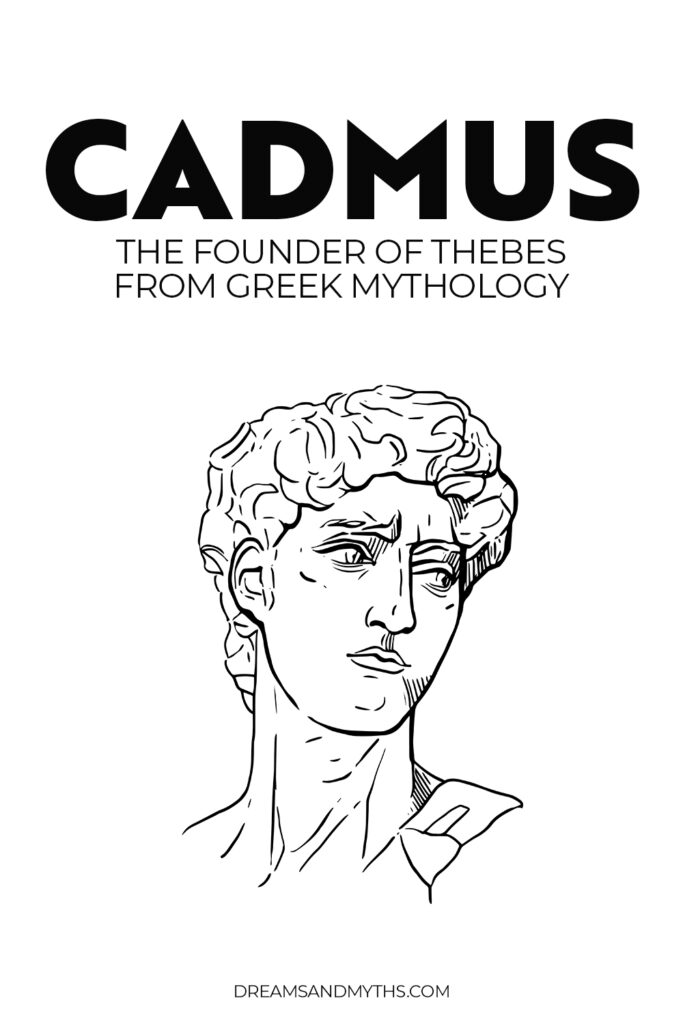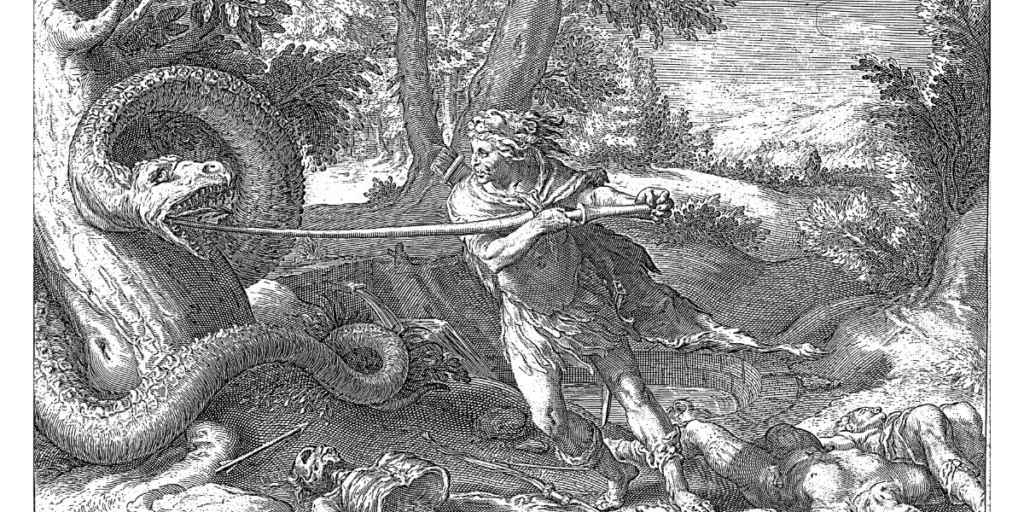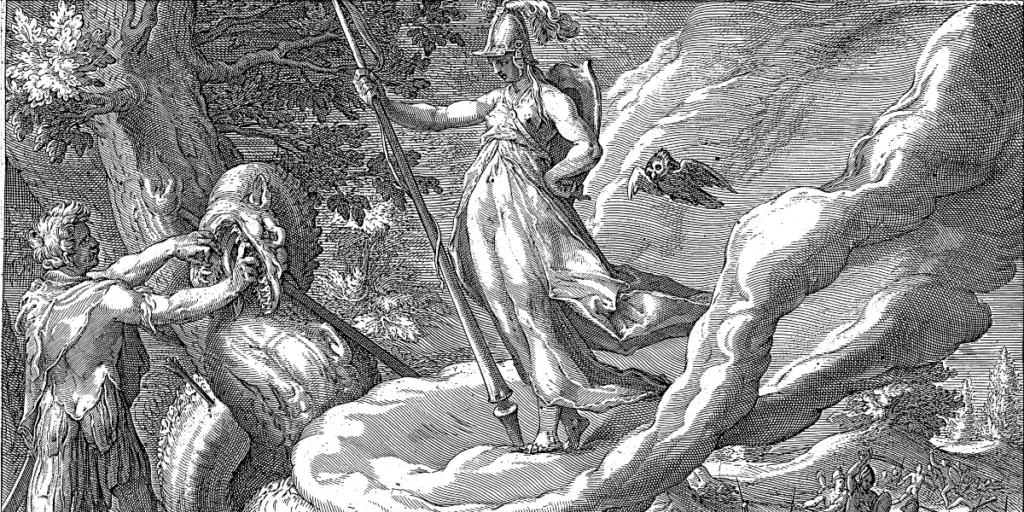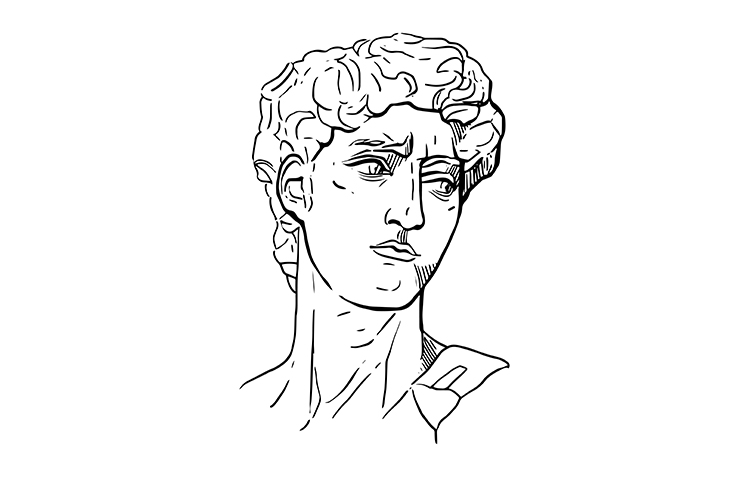Cadmus is an iconic figure from Greek mythology, also known as Kadmos. He was a figure in Greek mythology renowned for being the founder and first king of Thebes, a city in central Greece. According to the myth, Cadmus was the son of the Phoenician king Agenor and Telephssa (his mother), and he was the brother of Europa, who Zeus famously carried off in the form of a bull.
Cadmus is best known for his role in the founding of Thebes, a city that would become one of the most significant and influential in ancient Greece. The story of Cadmus and the founding of Thebes is a complex one that involves many twists and turns, and it is a tale that has been told and retold for centuries.

He is one of the most admired Greek mythology characters and continues to inspire people.
This article will give a deep insight into Cadmus’ life, his family, and the struggles that made him the king of Thebes. We’ll also look at the myths and legends surrounding him and how he found the city of Thebes and established its place in history.
Origin of Cadmus
Eastern Mediterranean is the place where Cadmus was born. His parents were royal and said they were children of Poseidon, the god of the sea. When Cadmus was young, he was compelled to leave his house to look for sister Europa.
The origin of Cadmus is closely tied to the story of his sister Europa and her abduction by Zeus. According to the myths, Agenor, the king of Phoenicia, sent Cadmus and his brother Phoenix to search for Europa. Cadmus encountered several challenges and obstacles, including a fierce dragon in Boeotia that guarded the spring of Ares, the god of war.
Despite these challenges, Cadmus ultimately succeeded in his quest and founded Thebes on the spring’s site, using the dragon’s teeth to sow the land and create a new generation of warriors.
In addition to his role as the founder of Thebes, Cadmus was also regarded as a cultural hero in Greek mythology. He was credited with introducing the alphabet and other cultural innovations to the Greeks and was often depicted in art and literature as a wise and enlightened figure.
Cadmus in Greek Culture And Society

The myth of Cadmus and Thebes’ founding was important in ancient Greek culture and society. The city of Thebes became a major center of Greek civilization. Cadmus was admired as a heroic figure and symbol of cultural progress.
As the founder of Thebes, Cadmus played a crucial role in the establishment and growth of the city. Thebes was one of the most influential and vital cities in ancient Greece. It was home to various important figures and events in Greek history. Cadmus is remembered for his role in Thebes’ founding and establishing it as a thriving center of culture and learning.
Cadmus is also remembered for introducing the Greek alphabet, which he is said to have brought to Greece from Phoenicia. This innovation greatly impacted the ancient Greeks and helped to spread knowledge and culture throughout the region.
The Greek alphabet was an essential tool for communication. It allowed the ancient Greeks to record and preserve their culture, history, and knowledge in a way that was not possible before.
Search For Europa
Cadmus’s search for Europa is more about fulfilling his duty to his father and trying to find his sister than rescuing her from Zeus. She was a beautiful and graceful young woman whom Zeus, the gods’ king, abducted. Zeus was captivated by Europa’s beauty and decided to kidnap her and take her back to his home on Mount Olympus.
To accomplish this, Zeus took on the form of a bull and approached Europa while she was playing near the shore. Europa was initially afraid of the bull, but Zeus could calm her with his gentle demeanor and coax her onto his back.
Once Europa was on his back, Zeus transformed into his actual form and carried her off to Mount Olympus. Once there, Zeus revealed his true identity to Europa.
The Battle Between Cadmus And The Dragon

On the journey to search for his sister for many years, he encountered many challenges and hurdles. One of the most famous challenges was the dragon that protected the spring of Ares, the god of war, and was tasked with protecting the spring and its sacred waters.
It is said that Cadmus eventually received a prophecy that he should give up his search and instead follow a cow to the place where he was meant to find a new city. Cadmus followed the cow to the region of Boeotia, where he came upon a spring guarded by a fierce dragon. The dragon was a powerful creature that guarded the spring with great ferocity.
Cadmus bravely engaged the dragon in battle and eventually defeated the dragon with the help of Athena (the goddess of war and wisdom). As punishment for his actions, Athena instructed Cadmus to sow the dragon’s teeth in the ground.
A group of fierce warriors known as the Spartoi, or sown men, sprang up from these teeth. Cadmus pacified the Spartoi by throwing a stone among them, causing them to turn and kill one another. He then used the remaining Spartoi to help him find the city of Thebes.
Cadmus and the Spartoi worked to clear the land and build the city’s walls and infrastructure. The city of Thebes quickly became a major center of Greek civilization. It was known for its cultural and artistic achievements.
The Role of Harmonia In Cadmus’ Mythology
Harmonia was the daughter of Ares and Aphrodite (the goddess of love and beauty). She was well known for her beauty and elegance.
After the founding of Thebes, Cadmus married Harmonia. Together, Cadmus and Harmonia had several children, including Semele, who was Dionysus‘ mother (the god of wine and celebration).
When Harmonia married Cadmus, she was given the magical necklace from her mother, Aphrodite, as a marriage gift. It was said to bring good fortune to its wearer but also bring about its ultimate downfall.
Harmonia also played a role in the Cadmean victory, which was a decisive victory. He helped to pacify the Spartoi, the warriors who sprang up from the dragon’s teeth.
FAQ’s
Other legends state that Cadmus brought civilization to Greece by introducing several important items, such as coins and plows for agriculture. He introduced letters to Greece, founded numerous cities, built fortifications such as walls around them, and constructed temples dedicated to various gods, including Hera at Argos and Apollo at Delphi. Furthermore, he was said to have been instrumental in bringing music and dancing back into religious rites. He had driven away certain barbarians with whom they had fallen out of use due to their violence against humans during rituals.
It was said to bring good fortune to its wearer but also bring about its ultimate downfall. The necklace was given to Harmonia as a wedding gift from her mother and played a significant role in the myth of Cadmus and Harmonia. Some versions of the myth suggest that the Necklace of Harmonia was a symbol of the dangers of pride and the importance of humility.
“Cadmean victory” referred to a decisive victory in Greek mythology. It was derived from the myth of Cadmus and the founding of Thebes. It was often used in Greek literature to celebrate the triumph of good over evil. The term “Cadmean victory” continues to be used in modern language to refer to a decisive or overwhelming victory.
Conclusion
Cadmus is a significant figure in Greek mythology who is remembered for his role in the founding of Thebes, the introduction of the Greek alphabet, and his marriage to Harmonia. The enduring appeal of Cadmus’s story and of Greek mythology more generally can be attributed to the timeless themes and memorable characters that they explore, as well as the vivid and compelling nature of the storytelling. Overall, Cadmus remains an important figure in the history and culture of ancient Greece, and his legacy continues to be celebrated and remembered.
